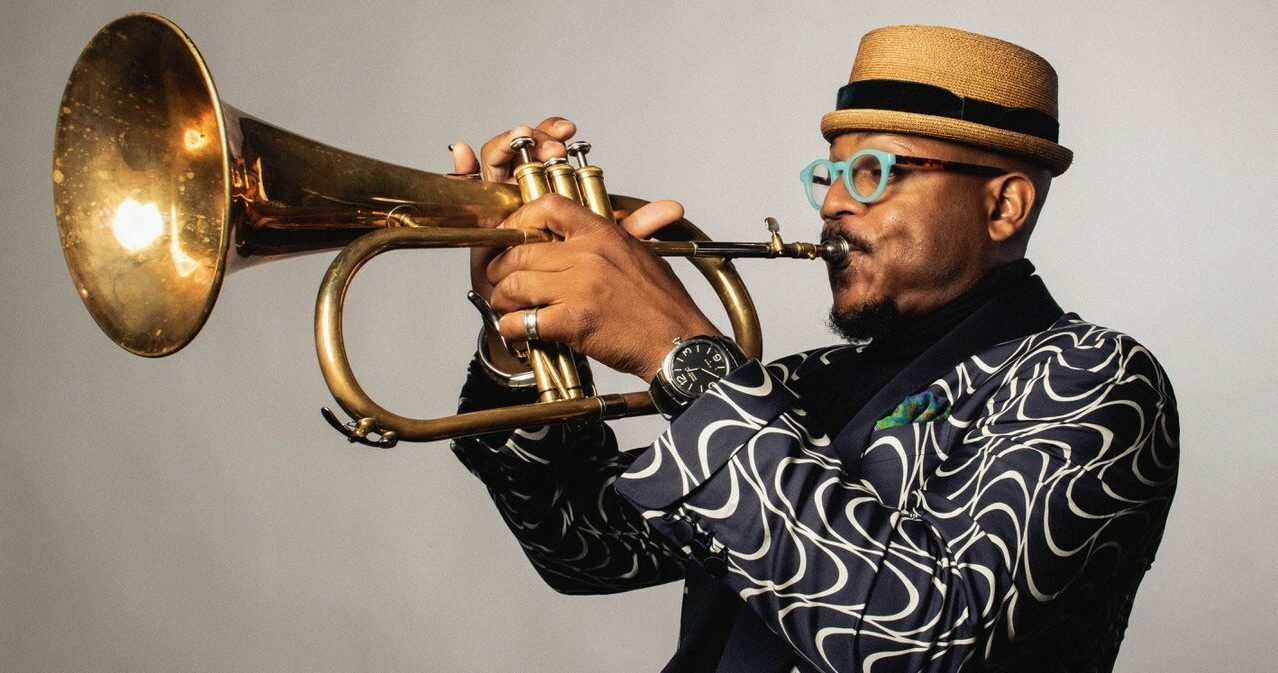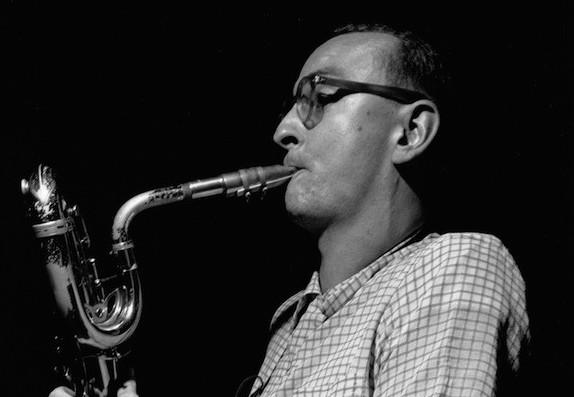 |
| Trumpeter Etienne Charles |
Listening to "Earth Tones," an ambitious statement
on climate change by trumpeter and composer Etienne Charles, Friday evening at
the Lydia Mendelssohn Theatre on the campus of the University of Michigan, I wondered
how unique and unforgettable this project would be if Charles's group had performed
it over an extended period. He told the near-capacity audience he's only performed
it twice live. Unfortunately, that was apparent, given the presentation's
blandness and lack of cohesion. Instead of being a tight unit that such a considerable
work mandates, the octet came off like a collection of jam session musicians, which
was a shame given all the stars Charles assembled, like saxophonist Marcus
Strickland, bassist Jonathon Muir-Cotton, and vibist Warren Wolf. It seems
impossible to go wrong, including such capable shooters. Anyway, the hour-plus mix-media
presentation embodied all the potential of one of pianist Jason Moran's mix-media
offerings. The video footage that Charles played in the background showed the impact
of climate change in places like Houston, Louisiana, and Puerto Rico. The
footage was disheartening, but the music that followed didn't do anything to boost
my spirits. For the record, Charles is a terrific trumpeter and composer with
an impressive work history and growing discography—his blowing is warm and pristine,
ala Little Johnny Cole and Art Farmer. However, Charles's presentation, as
well-intended as it was, was bland and could've benefited from a dash of salt
and a pinch of swing here and there. The individual soloing was worth
reporting, particularly Wolf, who played vibes, keyboard, Marimba, and piano.
Charles spent the concert switching from trumpet to percussion. No, the
presentation wasn't a bust. However, to pull off such an ambitious work as "Earth
Tones," an ensemble must be as tight as the seat of a fat man's dress
slacks. For those who agree with my review, please don't give up on this work. The
project is worth revisiting after Charles patches all the surface cracks and tours
for at least a year. Friday's offering was, at best, a competent dry run.
